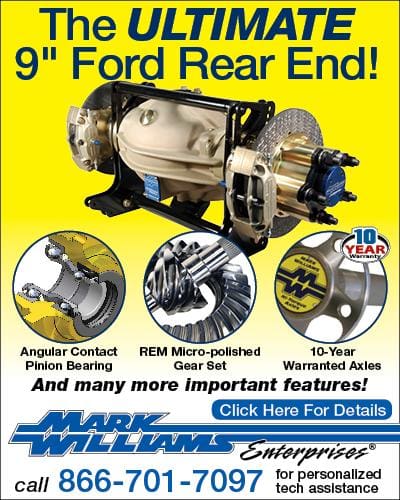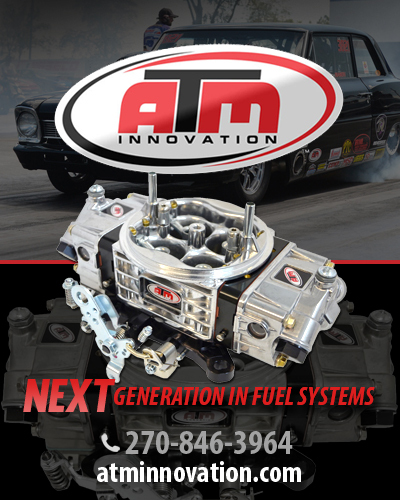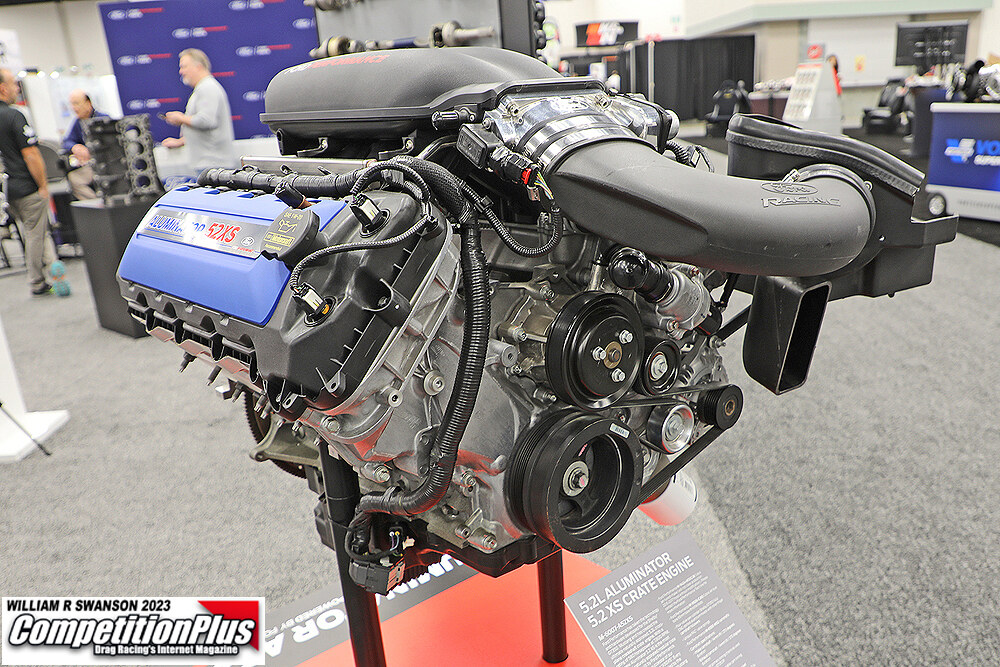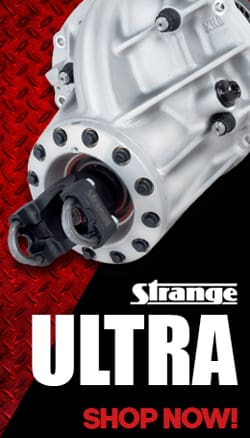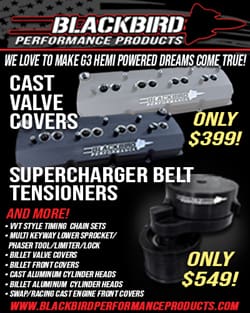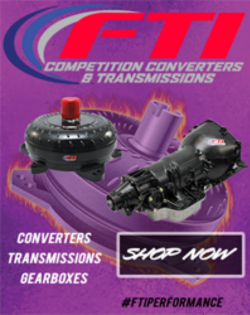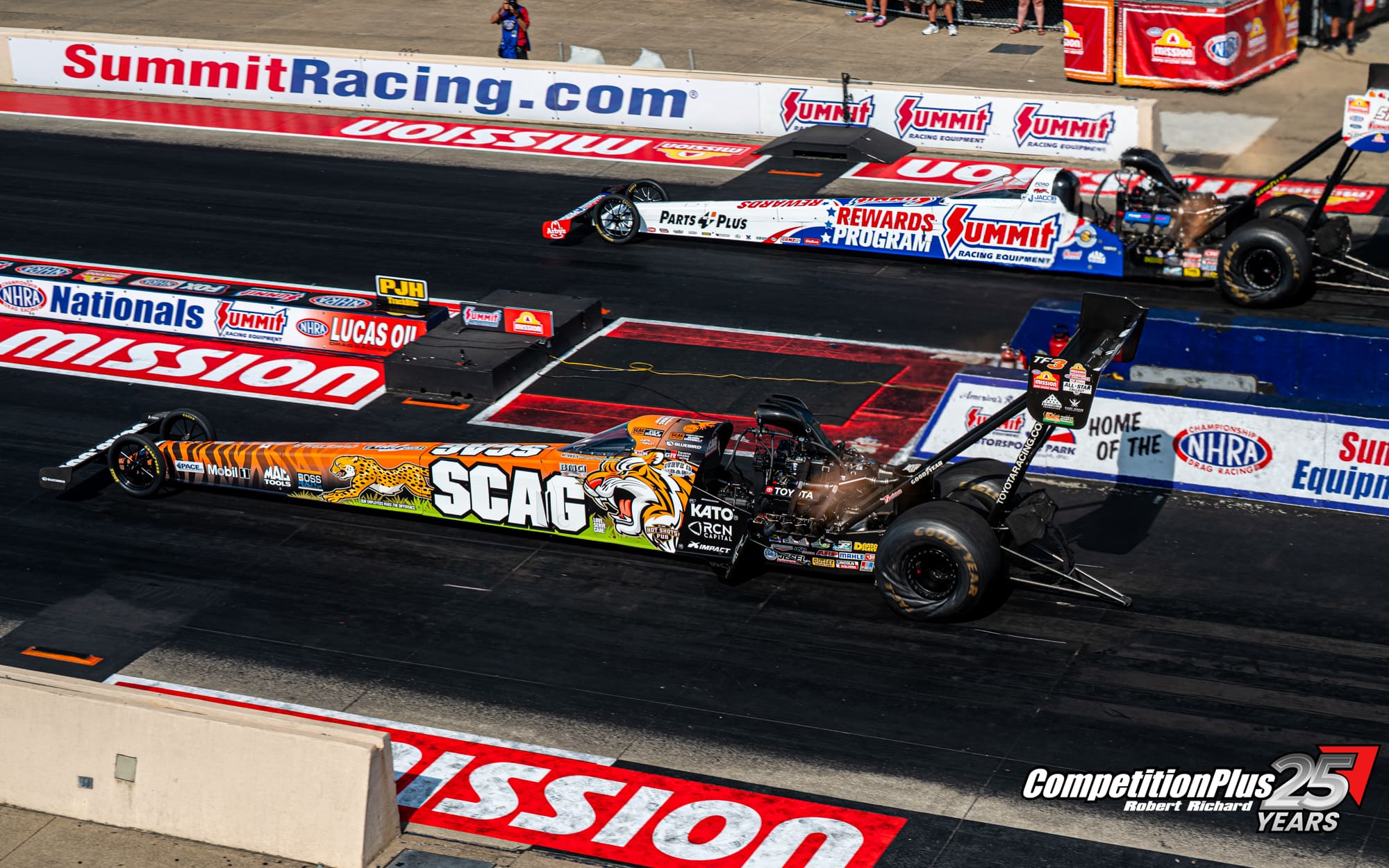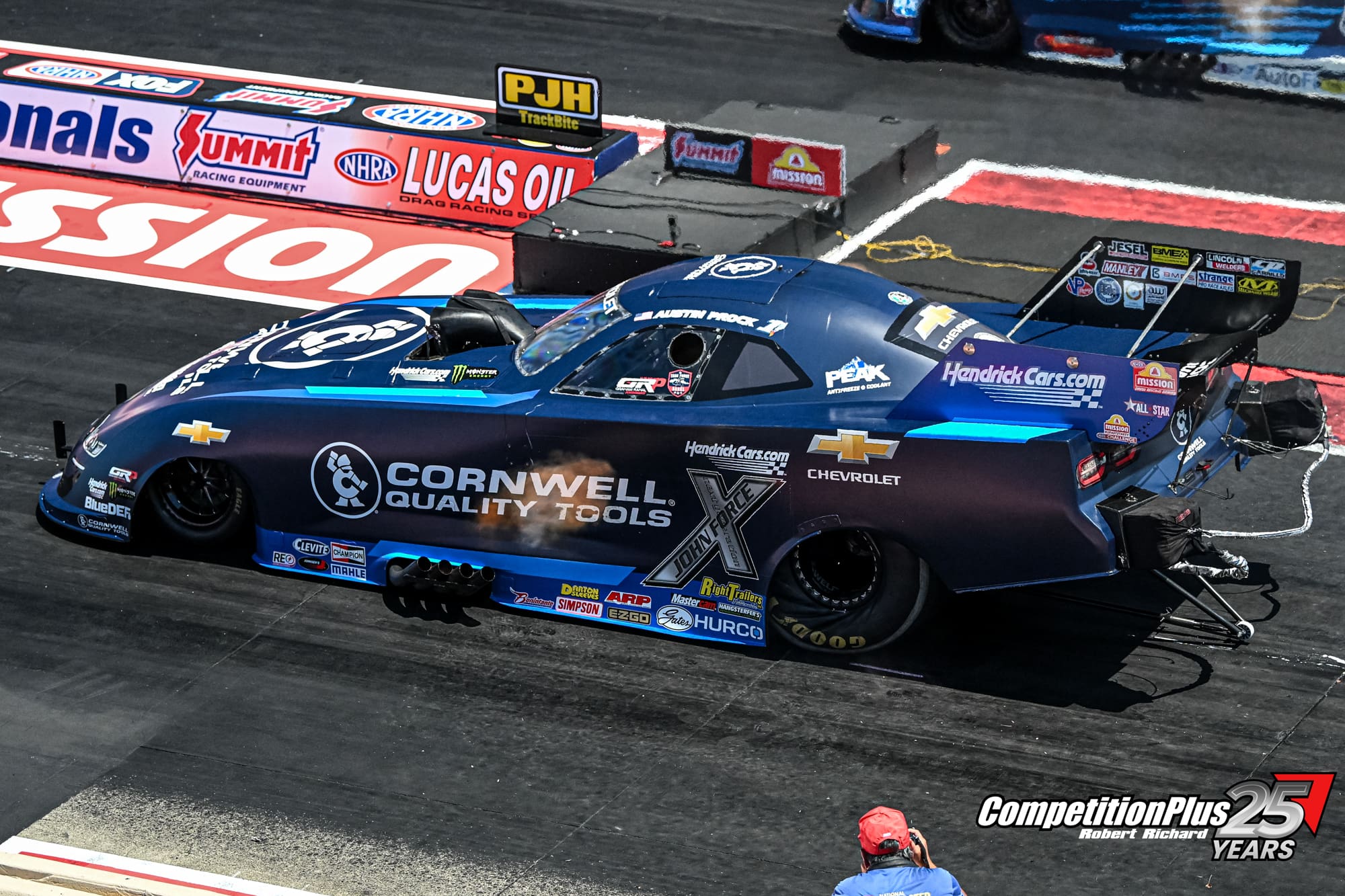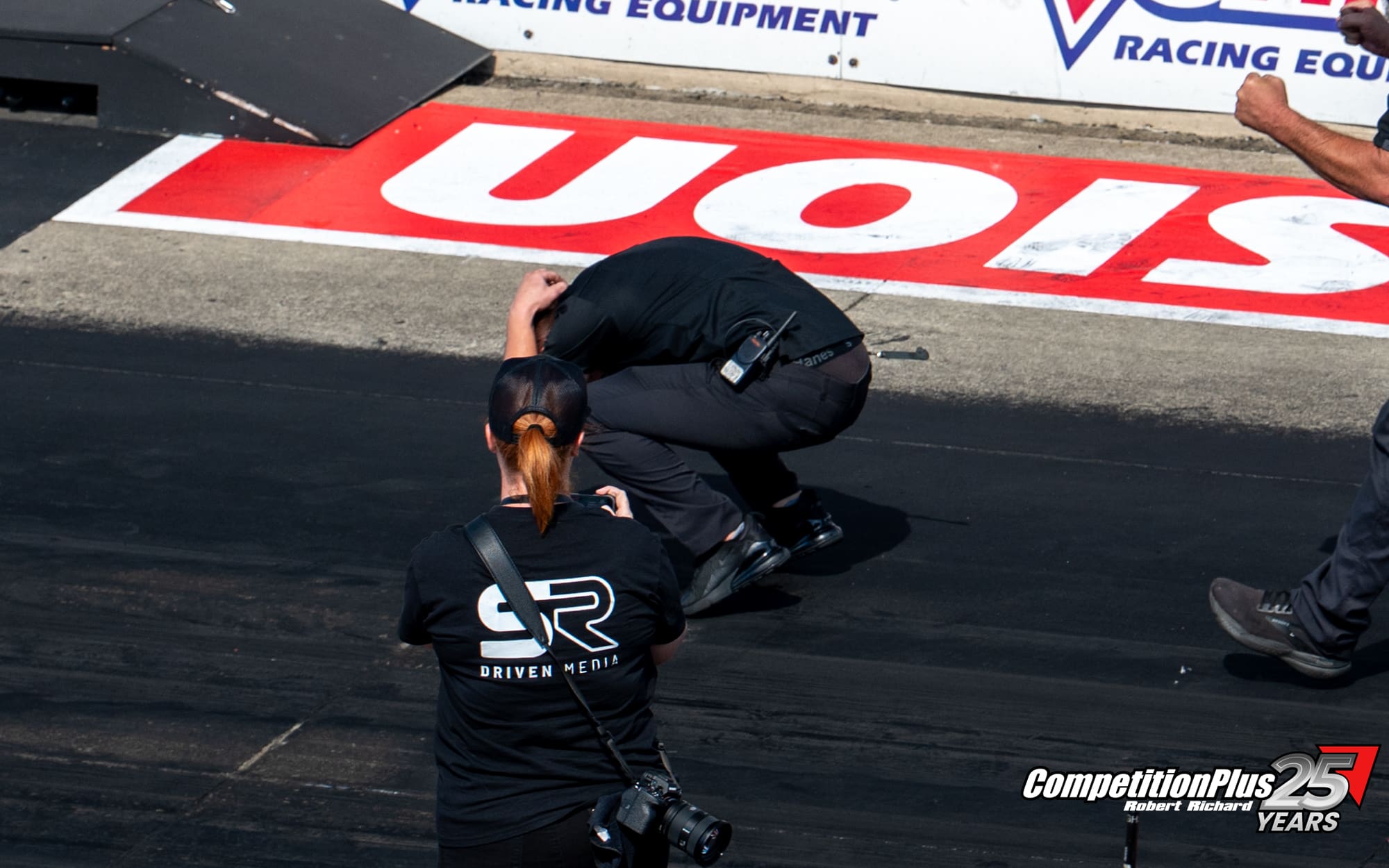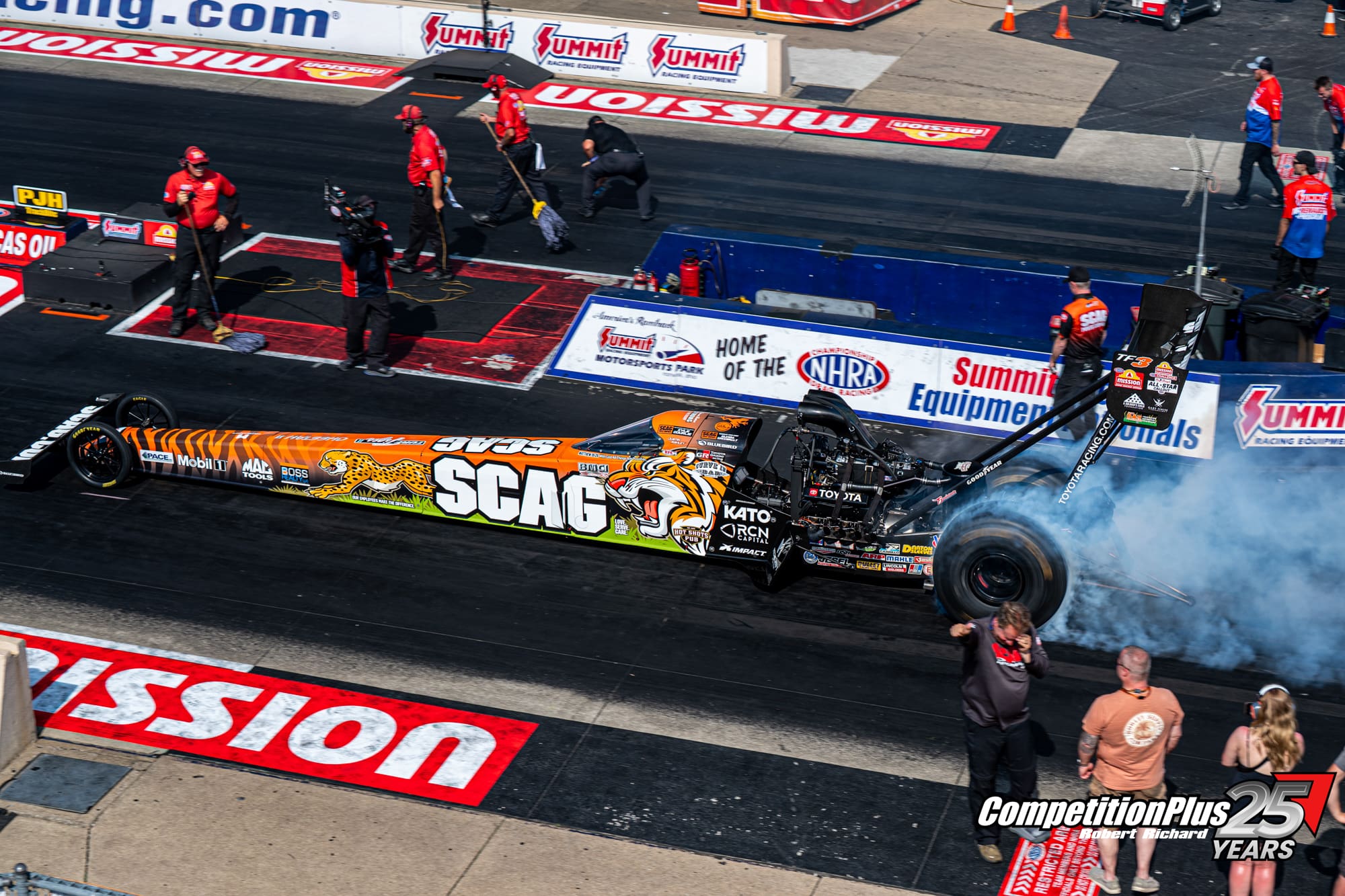

Tim Mcamis was the original Pro Modified champion back in 1990 and has watched this form of racing he helped to pioneer go through many phases, but latest “rules adjustment” inspired him to create a video.
An outspoken critic regarding issues related to the class, McAmis has had rants about everything from Chinese product knockoffs to drivers in over their heads, but one released in November 2017 has some laughing at the parody, and others shaking their heads in disgust because as they see it, “McAmis is spot on.”
McAmis believes the NHRA Pro Modified provides the truest example of what the class has become with the latest rule allowing lock-up converters on nitrous cars. The move was made with the intent of making this combination more competitive.
“Over the years the rules have changed,” McAmis explained. “They’ve been manipulated by people in the class bitching about this and that they didn’t like. What’s happened is its diluted Pro Mod into what it is today.
“Back when I was racing in the early 1990s and mid-1990s, you had a real colorful host of characters. It was almost like a circus act. There were so many people out there, and the cars were out of control. They were unmanageable, and the show was phenomenal. Today the cars are so automated that they don’t really make any bad runs. They are very much out of the control of the driver.
“That started when some guys were bitching about the shifting of the cars. They were complaining that they couldn’t make the one-two shift, or maybe they were getting old, and they couldn’t make it. They got the automated shifter admitted. When I was racing, it was very manual. You shifted the cars; automated shifters were not allowed. You ran a clutch. You left with the clutch.”
And with the NHRA’s introduction of the lock-up converter for nitrous cars, McAmis believes this is just another move to take the driver out of the equation.
In his video, he has offered the Pro Modified Driver’s Kit, which includes a push button and for the driver to consume his idle time, a button with a cable, a bag of Cheetos and a 44-oz. Fountain drink.
McAmis isn’t alone in his disdain, and at least two manufacturers see the beginning of the end for the clutch, once an equalizing staple in the class.

“This is extremely disheartening,” said Mike Norcia of Ram Clutches, one of the founding supporters of the Pro Modified movement as far back as 1988. “I never thought I’d see a day when I would see the clutch phased out of the class. Tim McAmis is exactly right, and my sentiments run in line with his.
“I heard many people refer to this as the dumbing-down of racing. I don’t really want to say people have gotten lazy but it’s become more of let’s go make a run and come back and have a Pepsi, instead of coming back and making a decision about what we want to do in the clutch or gear ratios to make the car run faster.
“I’m not saying they aren’t doing that with the automatics, but it is so much easier for Joe Blow to go out and purchase a racecar, get in it and go racing than it ever was and not do the work or the learning curve you normally would have had you run a manual transmission and had to figure that stuff out.”
Boninfante Racing Clutches Vice President Nicky Boninfante said he unsuccessfully lobbied NHRA hard for a lock-up clutch for those nitrous racers who wanted to run a clutch.
“Before the lock-up, teams were able to be fairly competitive with the clutch,” Boninfante said. “The NHRA’s changes on the lock-up converters, without allowing the lock-up clutch, you’ll see the teams switching over, and it won’t be a cheap switch, you’re looking at about $60,000.”
Boninfante said for those teams running the lock-up clutch; the investment could only be about $3,000 on average.
Boninfante doesn’t believe the lock-up clutch would necessarily be a better solution for the clutch-equipped nitrous Pro Mods, but could very well be a parallel option for considerably less.
“I guess you’ll see the last of the clutches in Pro Modified,” Boninfante said. “The NHRA cannot give me a reason, why if the lock-up clutch isn’t quicker but a viable equivalent they’re not an option. The nitrous cars are the one needing the boost to keep up, and you’re asking them to give up on something that could be the equivalent or down the road better, and you won’t consider it? Makes no sense at all.”
NHRA’s Vice President of Technical Operations Glen Gray said the sanctioning body has considered making the lock-up clutch legal, but the time is not right at present. .
“At this time we just thought there were enough changes that we were making for this year,” Gray said. “We took a look at the lockup converter, and we’ll see how the performance is on that. This is something we can consider for later down the road.

“We’re keeping our options open with [the lock-up clutch]. We’ll see how the performance is and see if this helps the nitrous cars and does what we hope it will do. If we continue to have any kind of parity issues, then we’ll get it back on the table.”
Gray confirmed there is no fear of the lock-up clutch outperforming the lock-up converter.
“We just don’t have as much experience with that,” Gray said. “We’ve seen the lockup converter over on an eighth mile. We’ve got a pretty good idea how it works and what kind of performance we’re going to see from it. We just know a little bit more about it at this point.
As Gray puts it, Pro Modified has enough variables as it stands to add another into the mix.
“We really have four combinations now,” Gray explained. “We have two different combinations with the nitrous cars, a clutch, and a lockup converter, and they’re going to be treated from a performance standpoint differently, so we should be able to keep a level playing field between the two.”
Nitrous Pro Mod racer Bob Rahaim is one of those faithful clutch users who had no other choice but to switch over. But for him, switching over to the lock-up converter appears to have made his car quicker at the moment.
“We didn’t want to spend the extra money right at this point because we’re a small team but right now this just seems like it’s proven to be a faster setup for us,” Rahaim said.
Rickie Smith, a veteran of the Pro Stock wars in the 1980s before transitioning into Pro Stock, admits he never wanted to abandon the clutch but did what he had to do to remain competitive including adapting to an automatic, lock-up converter combination.
“I don’t like going this way, I’d rather run a clutch,” Smith admitted.
But, as Smith put it, unless the NHRA was going to make the supercharged and turbocharged combinations run a clutch, they had to give the nitrous cars something to put them on the reasonable competitive ground.

“I think if you want to call yourself a professional, then you should be running clutches because any of your professional categories run clutches,” Smith said. “I don’t care if it’s a Top Fuel Funny Car, yes they’re on timers, but they’ve got clutch disks in there. They have to make that call with counterweight, they’ve got to make that call with weight. They still got to make those calls, the crew chief does. So seeing all these guys want to run around and call themselves a Pro Mod, a Pro guy, well in my book when you’re running auto, and nothing against the Sportsman guys, I come up that way, but an automatic to me is for sportsman racers, clutches are for pros.”
Now Boninfante believes the demise has already been set in motion by not allowing the lock-up clutch simultaneously.
“If NHRA had just allowed that option,” Boninfante said. “I believe that many of the teams that were running clutch would have made the switch over to the lock-up clutch. It would have been a lot cheaper and created less of a learning curve. It’s to the point where you cannot unring a bell.”
“I wouldn’t say we are watching the death of Pro Modified, but we are seeing a shift in philosophy and racing style from what we were used to seeing,” Norcia added. “I think it’s more evident in the grass-roots racing stuff we see now that’s pushing back towards the manual transmission stuff like the Gasser classes that are gaining so much popularity.
“I think everything runs in trends, and you see it with the small tire racing and the big dollar stuff in Alabama. What’s the race fan really looking for? That’s what it all is coming down to. It seems as if Pro Modified has become very stale and packaged in my opinion, like NHRA Pro Stock.










